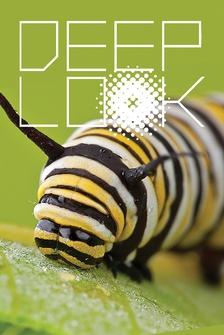- There are easy ways to create passwords that are long and strong and easy to remember that are not based on information that attackers can easily find about you.
And the way that we do that is we use word lists and dice.
Word list, essentially just a long list of dictionary words with numbers attached.
So what we're going to do is we're going to write down the numbers on this dice.
- [Speaker] 4, 5, 2, 6, 3.
My new lucky numbers.
- [Eva] And now we are going to look up 4, 5, 2, 6, 3 in this book.
- [Speaker] So there are words that correlate to the numbers that I just randomly rolled?
- Yes.
- [Speaker] Okay.
I want a cool word, like tiger.
- [Eva] The word is pre-soak.
- Pre-soak?
- Pre-soak.
3, 4, 1, 1, 5.
Henna.
- Okay.
I like this.
The idea behind this dice game is that it's both random and long.
Hackers using fast, powerful computers and sophisticated password cracking software are able to try many, many passwords a second.
A recent study by a security firm showed that a seven character password can be cracked in just a few seconds, but a 12 character password with uppercase letters and symbols is much more difficult to break.
Studies show it could take hackers well over a hundred years to crack.
That's safe, but also more difficult to type or remember.
Eva's six word random passphrase is easier to remember than a random string of 12 characters and practically impossible to break.
- Stinging, ignition.
Six is clutch.
- [Speaker] Clutch.
Okay.
Pre-soak, henna, stinging, ignition, clutch, hand break.
- Fantastic.
Now you have a passphrase.
These six words.
It is long, it's unique, it's difficult to guess and it's relatively easy to remember considering how long it is.
It is a very good way of creating random passwords, but a lot of password managers will automatically do this for you.
- [Speaker] Once you have a passphrase, you can use this to unlock a password manager that generates strong random passwords and stores them securely.
(upbeat music)














